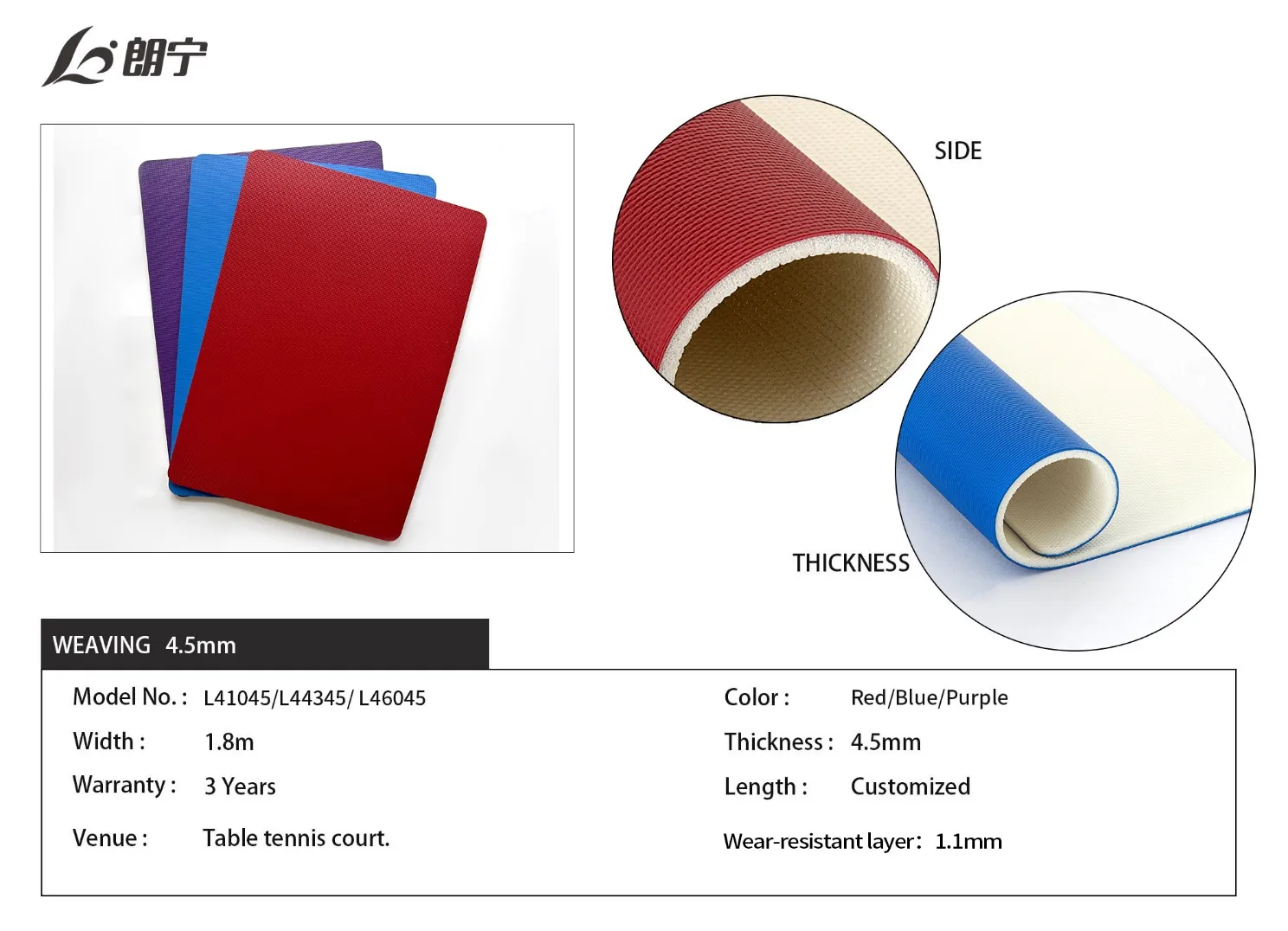- Afrikaans
- Arabic
- Belarusian
- Bengali
- Croatian
- Czech
- Danish
- Dutch
- English
- Estonian
- Finnish
- French
- Georgian
- German
- Greek
- hawaiian
- Hungarian
- Indonesian
- irish
- Italian
- Japanese
- kazakh
- Khmer
- Korean
- Kyrgyz
- Lao
- Latin
- Macedonian
- Malay
- Mongolian
- Myanmar
- Norwegian
- Persian
- Polish
- Portuguese
- Romanian
- Russian
- Serbian
- Spanish
- Swedish
- Tagalog
- Thai
- Turkish
- Turkmen
- Ukrainian
- Urdu
- Uzbek
- Vietnamese
- Zulu
Exploring Various Options for Commercial Flooring Solutions and Coverings
Exploring Commercial Floor Covering Options A Comprehensive Guide
When it comes to creating an effective workspace, every detail matters, and flooring is no exception. The type of flooring selected for a commercial space can significantly affect the aesthetics, functionality, and overall atmosphere of the environment. With a variety of options available, it is essential to understand the different types of commercial floor coverings, their benefits, and ideal applications.
1. Carpet Tiles
Carpet tiles are one of the most popular choices for commercial flooring. They are available in a myriad of colors, patterns, and textures, allowing for creative design elements in office spaces, retail environments, and more. Carpet tiles offer great acoustic properties, helping to absorb sound and reduce noise levels, and their modular nature facilitates easy installation and replacement. If spills occur, individual tiles can be replaced without needing to rip up the entire floor.
2. Vinyl Flooring
Vinyl flooring is another versatile option for commercial settings. Made from synthetic materials, it is durable, water-resistant, and easy to maintain. Vinyl comes in various styles, including luxury vinyl tiles (LVT) and sheets, mimicking the look of natural materials like hardwood or stone without the associated costs. This flooring is ideal for hospitality venues, healthcare facilities, and retail spaces, as it can withstand high foot traffic and is resistant to moisture. Its comfort underfoot and ease of cleaning make it a practical choice for busy environments.
3. Laminate Flooring
Laminate flooring offers an attractive alternative to hardwood with its cost-effectiveness and durability. Composed of a high-density fiberboard core topped with a photographic wood texture, laminate flooring can beautifully replicate the appearance of natural wood. Its resistance to scratches and dents makes it suitable for office spaces, retail areas, and even light industrial settings. Additionally, laminate flooring is easy to install, with many products utilizing a click-lock system.
commercial floor covering options

For those seeking timeless elegance, hardwood flooring remains a classic choice. It has a natural beauty that can elevate the aesthetic of any commercial space, particularly in high-end retail or hospitality environments. Although hardwood is generally more expensive than other options, its longevity and ability to be refinished can make it a worthwhile investment. However, it requires more maintenance and is not recommended for areas prone to moisture.
5. Concrete Flooring
Concrete flooring has become increasingly popular in modern commercial designs. It offers durability and strength, making it ideal for high-traffic areas such as warehouses and manufacturing facilities. Moreover, concrete can be treated with various finishes, colors, and sealants to enhance its visual appeal. Its low maintenance requirements and resistance to wear and tear make concrete an efficient flooring choice for industrial and retail spaces alike.
6. Rubber Flooring
Rubber flooring is particularly advantageous in facilities where safety is a concern, such as gyms, playgrounds, or medical settings. Its slip-resistant properties and cushioning effects help prevent injuries, making it a smart choice for environments with high foot traffic. Moreover, rubber flooring is available in various colors and styles, adding a pop of vibrancy while offering practicality and comfort.
Conclusion
Selecting the right commercial floor covering is crucial for any business aiming to create an appealing and functional space. Each option presents unique advantages, so understanding the specific needs of your environment is vital. Whether you prioritize aesthetics, durability, maintenance, or safety, there are floor covering options available to meet diverse requirements. By investing time in choosing the appropriate flooring, you can enhance your commercial space's overall atmosphere and functionality, contributing to a positive experience for employees and customers alike.
-
Benefits of PP Interlocking Floors for Gym SpacesNewsJul.08,2025
-
Durability Testing for Interlocking Sports Floor TilesNewsJul.08,2025
-
Overview of Tennis Court Flooring MaterialsNewsJul.08,2025
-
Portable Basketball Floor SystemsNewsJul.08,2025
-
Eco-Friendly Badminton Court Flooring OptionsNewsJul.08,2025
-
Durability Testing for PVC Floor Mat RollsNewsJul.08,2025
-
Top Materials Used in Tennis Court FlooringNewsJul.03,2025

